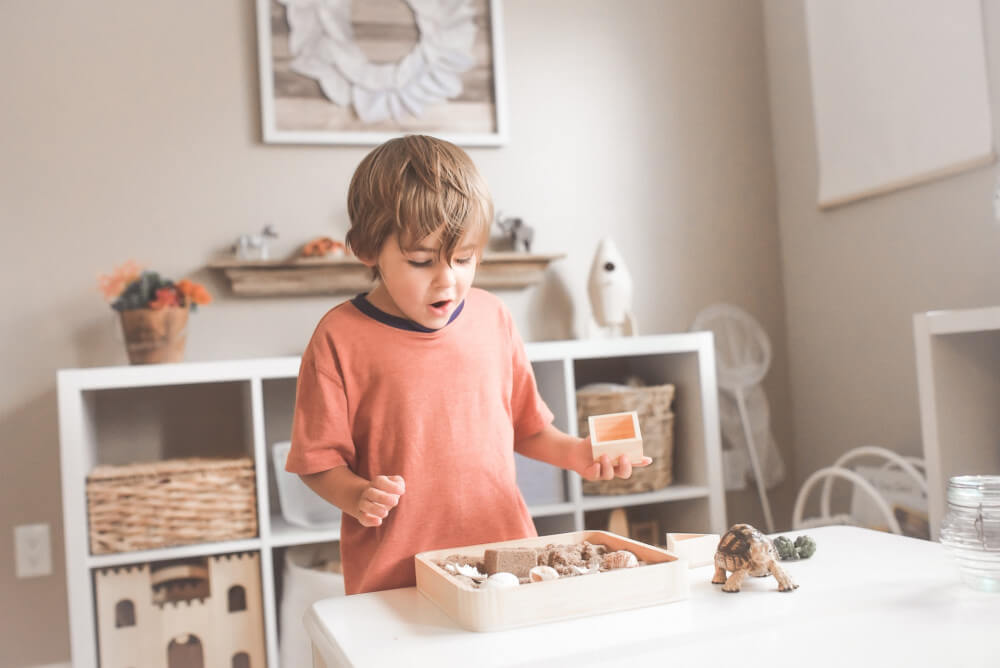A human brain develops the most till the age of 5 more than at any other time in life.
From ages 3 to 5, which are considered preschool years, you have the timeline to build a foundation for future learning, health and life success.
Here are some broad milestones which you can use as a checklist to ensure the holistic development of your preschooler (3-5 years).
PHYSICAL DEVELOPMENT
-
Your child should gain about 1.8 to 2.25 kgs per year.
-
Their height should grow about 2 to 3 inches per year.
-
They should have all 20 primary teeth by age 3.
-
They should have 20/20 vision by age 4.
-
Should be able to sleep for 11 to 13 hours at night.
GROSS MOTOR DEVELOPMENT

-
Physical capabilities – They should become more skilled at running, jumping, throwing, and kicking.
-
Better reflexes – They should be able to do things requiring quick reflexes like catching a bounced ball.
-
Balancing – Activities requiring balance should become more natural for them, like hopping on one foot, pedaling a tricycle and balancing on one foot for up to 5 seconds.
FINE MOTOR DEVELOPMENT

By Age 3
-
Your child should be able to draw a circle.
-
They should be able to draw a person with 3 parts.
-
They should be able to use children’s blunt-tip scissors.
-
Be able to Self-dress (with supervision)
By age 4
-
By now your kid should be able to draw a square
-
Should be able to use scissors, and eventually be able to cut a straight line.
-
They should be able to put on clothes properly.
-
Able to manage a spoon and fork neatly while eating.
By age 5
-
By now they should be able to spread with a knife.
-
Be able to draw a triangle.
LINGUISTIC DEVELOPMENT
By age 3 –
-
Your child should be using pronouns and prepositions appropriately.
-
Should be able to form three-word sentences in any language.
-
Should be able to use plural words.
By age 4 –
-
Your child should understand size relationships.
-
Be able to count to 4.
-
Should be able to name 4 colours.
-
Should enjoy rhymes.
By age 5 –
-
Should gain understanding of time concepts.
-
Be able to count to 10.
-
Remember telephone number.
-
Be responsive to “why” questions
It’s absolutely okay if your child stutters while speaking. It happens because ideas come to their mind faster than their ability to express them, this happens especially when they are stressed or excited.
Just be attentive when the child is speaking and don’t comment on the stuttering.
When to consult a speech pathologist –
-
If there are any other signs with the stuttering, such as tics, grimacing, or extreme self-consciousness.
-
If the stuttering lasts for longer than 6 months.
BEHAVIOURAL DEVELOPMENT
-
Social skills – Your kid should start playing and cooperating with other kids.
-
Exploring limits – Pre-schoolers start to test their physical, behavioural, and emotional limits. Creating a safe, structured environment in which they can explore and face new challenges is important.
-
Curiosity – Your child should display curiosity , initiative, the desire to explore, and enjoyment without feeling guilty or inhibited.
-
Morality – Preschoolers develop morality to please their parents and others of importance, this is also known as the “good boy” or “good girl” stage.
-
Learning to lie – Preschoolers start storytelling by this age as their language development is the fastest during this age period. Elaborate storytelling can progress into lying. If this is not addressed during the preschool years, this behavior may continue into adulthood.
-
Back talking – Backtalk is most often a way for preschoolers to get attention and a reaction from an adult.
TIPS FOR PARENTS
-
Keep them safe from accidents – The curious and exploring nature makes the kids of this age group prone to accidents, it is important to take all safety measures possible.
-
Promote independence – Let them do what they can by themselves, this will make them more self-sufficient.
-
Do not redo what they have done – This will help in increasing their confidence.
-
Let them solve simple problems – Things like assembling a toy, getting something from a higher place, let them try to figure out things by themselves unless they ask for your help. This helps in character building.
-
Praise them – Kids repeat behaviours that get attention. If good behaviour is appreciated they will most likely repeat it.
-
Turn responsibilities into a game – If your child is not listening to you, try turning it into a game. Humour and games are the best tools to get your child to cooperate and listen to you.
-
Prioritise play – Playing and making games helps in expanding the imaginative power of your kid. Get them toys that they can create with, like clays, paints, building blocks etc.
-
Do not delay disciplining – If you must reprimand your child, do so when you see them misbehaving. Kids forget very soon, if you scold them for something they did a while back it will feel random and undeserved to them.
All this aside, this is the age when you will be able to enjoy your kid’s childhood the most, be present and have fun with them. these are broad guidelines as we know that every child is different. That’s why our learning kits give immense room for experimentation and can used utilized as per your kid’s learning pace.





